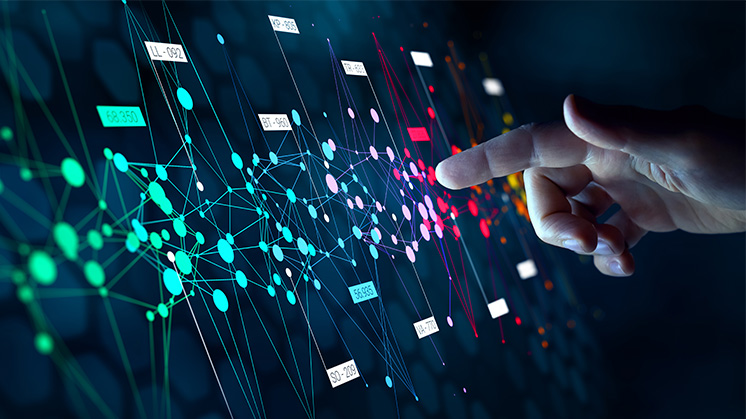IEEE 7008 Standard for Ethically Driven AI Governance
The IEEE P7008 standard aims to provide ethical governance guidelines for artificial intelligence (AI) systems. It is designed to help organizations develop, implement, and maintain AI technologies in a responsible manner that aligns with societal values. This standard focuses on ensuring fairness, transparency, privacy, accountability, and security in the design, development, deployment, and use of AI algorithms.
The IEEE P7008 standard is particularly important for industries relying heavily on AI systems such as healthcare, finance, transportation, and manufacturing. By adhering to this standard, organizations can mitigate risks associated with biased decision-making processes, privacy breaches, and potential misuse of data. The standard also emphasizes the importance of continuous monitoring and evaluation of AI systems to ensure they remain ethical throughout their lifecycle.
The IEEE P7008 standard is closely aligned with other international standards such as ISO/IEC 29134 series on AI ethics and IEC TR 6393-1 regarding AI governance. It provides a comprehensive framework that covers various aspects of AI development, from initial design stages to post-deployment maintenance.
One key aspect of the IEEE P7008 standard is its emphasis on fairness in AI systems. This includes ensuring that AI algorithms do not perpetuate or exacerbate existing social inequalities. To achieve this, organizations must carefully consider the data used to train their models and ensure it represents diverse populations. Additionally, they should implement mechanisms for detecting and correcting biases within the system.
Transparency is another crucial component of the IEEE P7008 standard. It requires that AI systems be designed in such a way that users can understand how decisions are made by the system. This includes providing clear explanations of why certain actions were taken or recommendations were made. Transparency also extends to documenting all changes made to the system over time, allowing for auditing and accountability.
Privacy is given significant attention under this standard as well. Organizations must ensure that their AI systems comply with relevant data protection regulations while still delivering accurate results. This involves implementing robust security measures to protect sensitive information from unauthorized access or exposure. Furthermore, it calls for designing systems that allow individuals to control what data about them is collected and used by the system.
Accountability plays a vital role in ensuring responsible AI use according to IEEE P7008 standards. This means holding those involved in developing, deploying, or using these technologies accountable for their actions. It includes establishing clear roles and responsibilities within teams working on AI projects as well as setting up processes for handling complaints or concerns raised by stakeholders.
Security is another important consideration under IEEE P7008 guidelines. This involves protecting both the integrity of the data used to train AI models and the overall functioning of the system itself against threats such as cyberattacks or manipulation attempts. Organizations are encouraged to conduct regular assessments of their systems' security posture and make necessary improvements based on findings.
By following these ethical principles outlined in IEEE P7008, organizations can build trust with customers and stakeholders by demonstrating a commitment to responsible AI development. This not only helps protect against potential legal issues but also promotes innovation by fostering an environment where diverse perspectives are valued and considered when creating new technologies.
Benefits
- Enhanced reputation through responsible AI development
- Increased customer trust due to adherence to ethical standards
- Potential reduction in legal risks associated with biased or unethical practices
- Fostering an environment where diverse perspectives are valued and considered during AI project development
- Promotion of continuous improvement through regular assessments and updates based on findings from audits
- Ability to demonstrate commitment to responsible AI use, which can enhance brand image and attract more clients
Eurolab Advantages
At Eurolab, we offer comprehensive testing services that align closely with the IEEE P7008 standard for ethically driven AI governance. Our team of experts has extensive experience in evaluating and certifying AI systems according to this framework. We provide detailed reports outlining compliance levels across all relevant areas covered by the standard.
Our facilities are equipped with state-of-the-art technology capable of simulating real-world scenarios under which AI systems operate, allowing us to test their performance effectively. This ensures that our clients receive accurate assessments of how well their products meet ethical standards.
We understand that each organization has unique needs when it comes to ensuring responsible AI use. That's why we tailor our services to fit individual requirements, whether you're looking for general compliance verification or more in-depth analysis specific to particular aspects of the standard.
International Acceptance and Recognition
The IEEE P7008 standard has gained widespread acceptance internationally. Many organizations already incorporate its principles into their practices, recognizing them as essential for responsible AI development. By partnering with Eurolab, you can ensure that your company remains at the forefront of industry trends regarding ethical considerations in technology.





